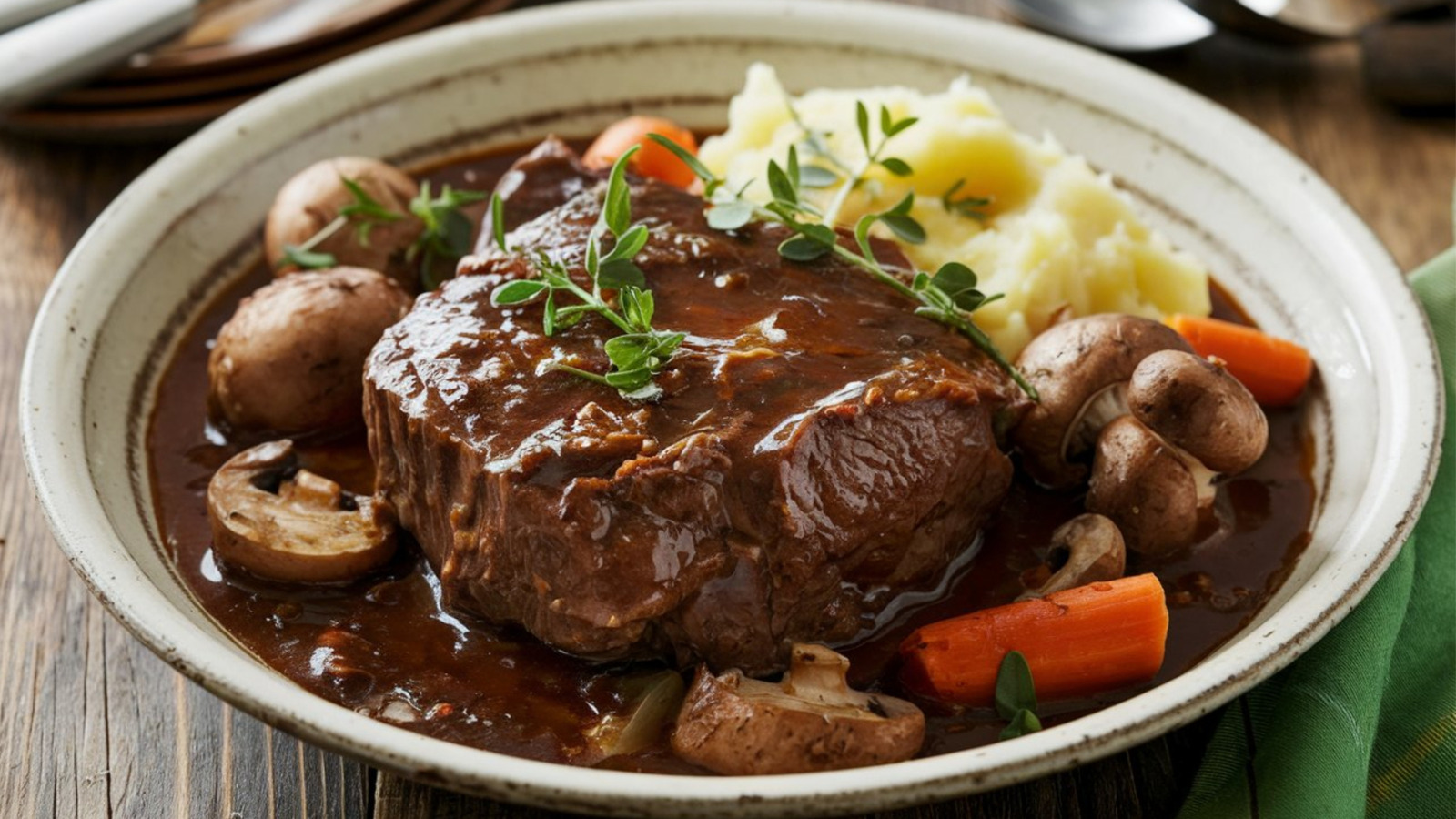
"As a Nigerian native, Balogun cites a famous dish, Jollof rice, to analogize the "next day" argument for beef stew. He told us, "I'll give you a tip: Yesterday's Jollof rice is the best Jollof rice." When the beef stew sits overnight, says Balogun, "All the ingredients together, they start to changefully release each other." The initial sauteeing and simmering may unlock flavor and cooks ingredients from raw, but it's more of a jumping off point for both flavor and texture."
"Chef Balogun continues, "For the flavors ... you know, when you cook, sometimes it just takes time for things to start breaking down? ... It's like marination. Like when you're marinating, it takes time. And if you look at that sort of sensibility, it goes into stew too." Tough cuts of beef benefit from being marinated, as the process imparts more complex flavors and tenderize them. Evidently, a premade stew acts a mutual marinade for the beef, broth, and veggies."
Slow-cooked beef stew improves after resting because prolonged standing allows flavors to meld and ingredients to break down further. Overnight refrigeration lets aromatics and seasonings penetrate meat and vegetables, producing deeper, more cohesive taste and smoother textures. Tough cuts benefit as the braising liquid continues to tenderize fibers in a marinade-like effect. Initial sautéing and simmering develop and bloom flavors, but extended resting acts as a continuation of those transformations. Preparing stew a day ahead yields a richer broth, more integrated seasonings, and more tender beef, making reheated leftovers often superior to freshly finished stew.
Read at Tasting Table
Unable to calculate read time
Collection
[
|
...
]